Courses
EES 002 Introduction to Environmental Science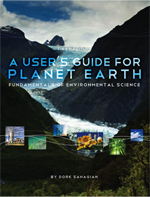 Focuses on natural and human-induced drivers and consequences of environmental change. Exploring options for mitigating and adapting to environmental change in ecosystems, physical and social systems, we will examine such topics as biogeochemical cycles, population pressure, ecosystem diversity, productivity and food security, energy, water resources, climate change, pollution, ozone, urban issues and sustainability. Stresses interactions and interrelationships, using a series of case studies. Intended for any student with an interest in the environment.
Focuses on natural and human-induced drivers and consequences of environmental change. Exploring options for mitigating and adapting to environmental change in ecosystems, physical and social systems, we will examine such topics as biogeochemical cycles, population pressure, ecosystem diversity, productivity and food security, energy, water resources, climate change, pollution, ozone, urban issues and sustainability. Stresses interactions and interrelationships, using a series of case studies. Intended for any student with an interest in the environment.
EES 100 Earth System Science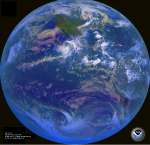
Examination of the Earth as an integrated system. Study of interactions and feedbacks between key components such as the atmosphere, biosphere, geosphere, and hydrosphere to permit better understanding of the behavior of the system as a whole. Response of the Earth system to human perturbations such as land use and emissions are explored in the context of predictions of future environmental conditions and their projected impacts back on human systems.
EES 363 Volcanology 3,4 Credits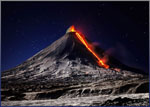 Volcanic eruptions can result in devastating effects on both a regional and a global scale. This course will examine physical dynamics that control eruptive processes at active volcanoes. Topics will include the role of volatiles, magma decompression, magma chamber and conduit dynamics, magma rheology, crystallization, fragmentation criteria, and transitions from explosive to effusive behavior. We will examine specifically how geochemical/textural analyses of volcanic rocks and minerals can provide quantifiable information on eruption processes.
Volcanic eruptions can result in devastating effects on both a regional and a global scale. This course will examine physical dynamics that control eruptive processes at active volcanoes. Topics will include the role of volatiles, magma decompression, magma chamber and conduit dynamics, magma rheology, crystallization, fragmentation criteria, and transitions from explosive to effusive behavior. We will examine specifically how geochemical/textural analyses of volcanic rocks and minerals can provide quantifiable information on eruption processes.
EES 402 Scientific Foundations for Environmental Policy Design 3 Credits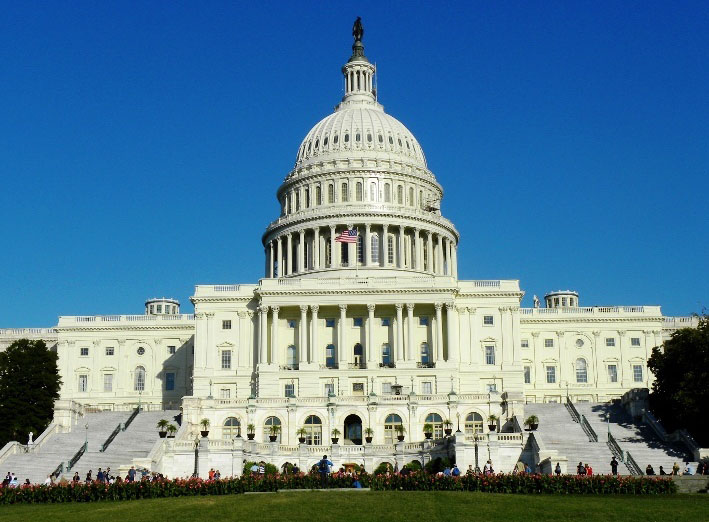 This course explores the science behind the environmental issues that bear on policy process at local, national and global scales. The course delves into the science of selected environmental issues that have either arisen from anthropogenic activities, that impact social systems, or that help policy-makers understand the consequence of different policy options. The course consists of readings and discussions of timely topics and one major project.
This course explores the science behind the environmental issues that bear on policy process at local, national and global scales. The course delves into the science of selected environmental issues that have either arisen from anthropogenic activities, that impact social systems, or that help policy-makers understand the consequence of different policy options. The course consists of readings and discussions of timely topics and one major project.
EES 446 Human-Climate Interactions 3 credits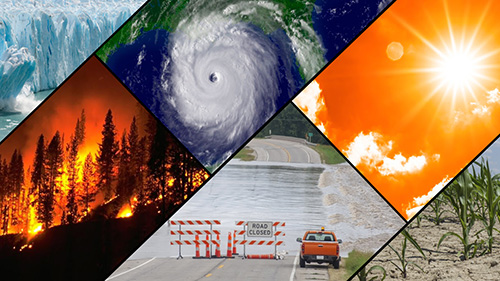 This course focuses on the climatic and other large-scale environmental impacts of human activity (land use changes and fossil fuel/other emissions), along with feedbacks between climate change and the land/sea surface, hydrology, productivity, etc., in the context of assessing both the causes, and societal consequences of climate change. We highlight observations and modeling of the consequences of anthropogenically-induced climate changes (e.g. storm frequency, SSTs, floods/droughts, sea level rise, disease vectors, etc.). The conceptual tools developed in this course bear on "societally relevant" problems now being touted by congress, funding agencies, and others. The course is based on readings from the primary literature, public press and other media, with discussion and analysis of both the science and the public perception of the science of climate change.
This course focuses on the climatic and other large-scale environmental impacts of human activity (land use changes and fossil fuel/other emissions), along with feedbacks between climate change and the land/sea surface, hydrology, productivity, etc., in the context of assessing both the causes, and societal consequences of climate change. We highlight observations and modeling of the consequences of anthropogenically-induced climate changes (e.g. storm frequency, SSTs, floods/droughts, sea level rise, disease vectors, etc.). The conceptual tools developed in this course bear on "societally relevant" problems now being touted by congress, funding agencies, and others. The course is based on readings from the primary literature, public press and other media, with discussion and analysis of both the science and the public perception of the science of climate change.
